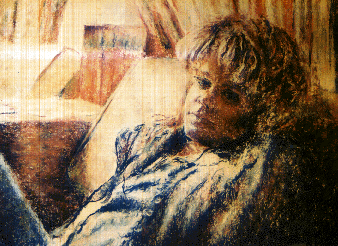
On the Dying, or Death, of a Loved One, and other Extremities Goethe: If you would be happy, you must do your duty. And what is your duty? The demand of the hour. And sometimes, or always, the demand of the hour is the demand of a lifetime. One response to pain, or fear, or despair, is to do what one should. And what is that? Does it depend on ethics, or morals, or Biblical prophecy? Ethics is abstract, but each individual has led a unique life, with a unique perspective. The point: There are differences between any two lives, and any difference may be decisive in any judgment, conclusion, or claim. Any difference. We hear: Poverty does not justify crime, because not all the poor become criminals. Some become saints, and scholars. But any difference may be decisive, inspiring one to divinity and another to a chainsaw. And the properly controlled experiment to validate a claim cannot, in theory or in imagination, be performed. We are up against a constraint as strong as Heisenberg's. The generality of time: the future. With all the power of God's will. So what to do? You must decide. Morality is largely an issue of society, of others, of fear. Do what you will, but make it what you admire, in the eyes of your chilldren, or your parents, or your God, or yourself. As Hindus have urged, We become what we admire, and, If we do what we should, we will get what we want. Even unto death. 1. We fear death, as if we understood life. 2. Do not suffer that it ends. It was not redemption. 3. Endless life does not solve the riddle of the world. 4. For loss, there is no consolation. So far as we can say, there is no loss.
![]()